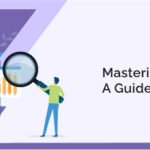
In the vast digital landscape, search engine optimization (SEO) plays a critical role in helping websites rank higher in search engine result pages (SERPs) and attract organic traffic. For beginners entering the world of SEO, understanding the fundamental strategies and best practices is crucial. In this blog post, we will explore ten essential SEO tips that every beginner should know. By mastering these basics, you’ll be well on your way to optimizing your website and improving its visibility online.
- Conduct Keyword Research:
Start by researching relevant keywords that align with your website’s content and target audience. Tools like Google Keyword Planner, SEMrush, and Moz Keyword Explorer can assist you in identifying high-traffic keywords that are relevant to your industry.
- Optimize On-Page Elements:
Ensure that your website’s on-page elements, such as titles, meta descriptions, headings, and URL structures, are optimized with relevant keywords. This helps search engines understand the context of your content and improves its chances of ranking higher in SERPs.
- Create High-Quality Content:
Crafting high-quality, informative, and engaging content is a crucial aspect of SEO. Focus on providing value to your audience by addressing their needs, answering their questions, and offering unique perspectives. Well-written content not only attracts readers but also earns backlinks, which contribute to improved rankings.
- Build a Strong Backlink Profile:
Backlinks are an essential factor in SEO. Aim to acquire quality backlinks from reputable and relevant websites. Guest blogging, content promotion, and outreach to industry influencers are effective strategies for building a strong backlink profile.
- Optimize for Mobile:
With the increasing use of mobile devices, optimizing your website for mobile is essential. Make sure your website is adaptable to different devices, loads efficiently, and delivers a smooth user experience. Google’s mobile-first indexing means that mobile optimization directly impacts your website’s rankings.
- Improve Page Speed:
Page speed is crucial for user experience and SEO. Optimize your website’s loading speed by compressing images, leveraging browser caching, and minifying code. Google’s PageSpeed Insights tool can provide insights and suggestions for improving your site’s speed.
- Use Descriptive URLs and Header Tags:
Craft URLs that are descriptive, user-friendly, and incorporate appropriate keywords. Additionally, utilize header tags (H1, H2, H3, etc.) to structure your content and make it easier for search engines to understand the hierarchy and relevance of the information on your webpages.
- Optimize Images:
Optimize images by compressing them without sacrificing quality.Utilize meaningful file names and provide alt text that precisely describes the content of the image. Optimized images contribute to faster page load times and can appear in image search results.
- Leverage Social Media:
Harness the power of social media platforms to extend the reach of your content and actively connect with your audience. Share your blog posts, infographics, and videos on social media to increase visibility, generate social signals, and potentially earn backlinks.
- Monitor and Analyze Performance:
Consistently track and assess your website’s performance by utilizing analytics tools such as Google Analytics. Analyze metrics such as organic traffic, bounce rate, conversion rate, and keyword rankings to gain insights into what’s working and identify areas for improvement.
Mastering the basics of SEO is crucial for beginners who seek to improve their website’s visibility and attract organic traffic. By implementing these ten essential SEO tips, you can lay a strong foundation for your SEO strategy and pave the way for long-term success. Remember, SEO is an ongoing process, so stay up to date with the latest industry trends and continue to refine and adapt your strategies as needed. Embrace these fundamentals, and watch your website climb the ranks in search engine results, reaching a wider audience and achieving your online goals.




